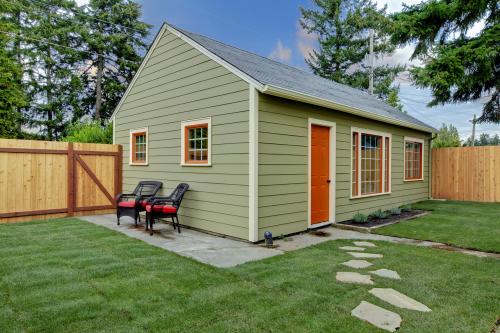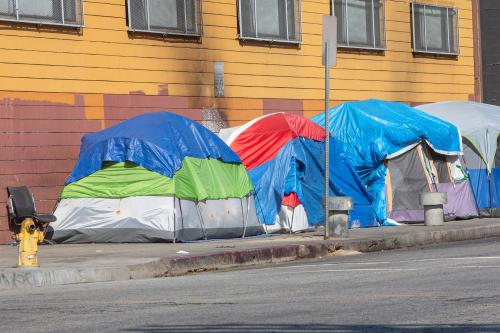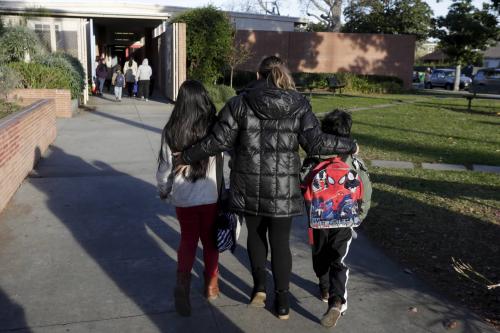Front page stories in the major national newspapers in recent days have announced banks voluntarily freezing mortgage foreclosures due to faulty paperwork, lack of legal right to foreclose, and other technical reasons—all legitimate reasons to make sure borrowers are not being illegally harmed. However, this is but a symptom of the underlying disease.
Like many (not all) of the economic ills of our overleveraged and underwater age, this tragedy is primarily due to investing too much money in the wrong location; trillions of infrastructure and real estate investment on the metropolitan fringe the market no longer wants. Scott Bernstein of the Center for Neighborhood Technology graphically showed this during testimony to Congress this past summer (see image).
##1##
According to Stan Humphries, the chief economist of Zillow, an online housing-research firm, if you plot changes in home values within a typical metro region on a satellite map, the result “looks like an archery target, with the outlying areas having experienced substantially higher total declines in home values” than areas closer to the central city.
Using metropolitan level analysis in selected metropolitan areas (Denver, Atlanta, Washington, DC, etc.), my rule of thumb is that housing prices in fringe ZIP codes have fallen two times the percentage of their metropolitan average since the peak of 2005 or 2006, but that closer in, walkable urban housing has dropped only by only one-quarter as much. The bulk of the mortgage crisis lies on the metropolitan fringe.
There is a long way to go toward rebalancing household, investor, and Federal government ledgers resulting from this overinvestment. And the mortgage foreclosure freezes will only lengthen the process. Until this painful rebalancing takes place, sustainable growth will not occur. This will entail dramatic write-downs of the residential mortgages or guarantees for both financial institutions and the federal government. Fringe housing will not regain value whenever the economy truly recovers; there is too much supply. These houses are now and will probably for the foreseeable future have a market price below replacement value. “Pretend and extend”, the current strategy for mortgage holders, will not work.
The major problems caused by the constipation in the housing market are keeping people anchored to locations where they cannot find work and in a financial strait-jacket that does not allow them to rebuild their lives. As my Brookings colleague Bill Frey has said, “Interstate migration remains flat at a post World War II low, about half of its rate in the late 1990s.” He concludes that the “country appears to be stuck in place.” This has led to record long-term unemployment, a trend highlighted by the Atlantic Monthly’s Don Peck in his March, 2010 cover story. As Peck says, “The Great Recession may be over, but this era of high joblessness is probably just beginning. It is likely to warp our politics, our culture, and the character of our society for years to come”.
The good news in this continuing mess is that there is substantial pent-up demand for higher density urban places, which will put a sustainable foundation under the U.S. economy similar to the foundation we enjoyed during the last half of the 20th century when we were building the drivable suburbs.
But we will not get there until we write-off or write-down the value of residential mortgages on the fringe of our metropolitan areas. As they say on Wall Street, “take a big bath and move on.”



Commentary
Pretend and Extend–Our Mortgage Crisis Fantasy
October 15, 2010